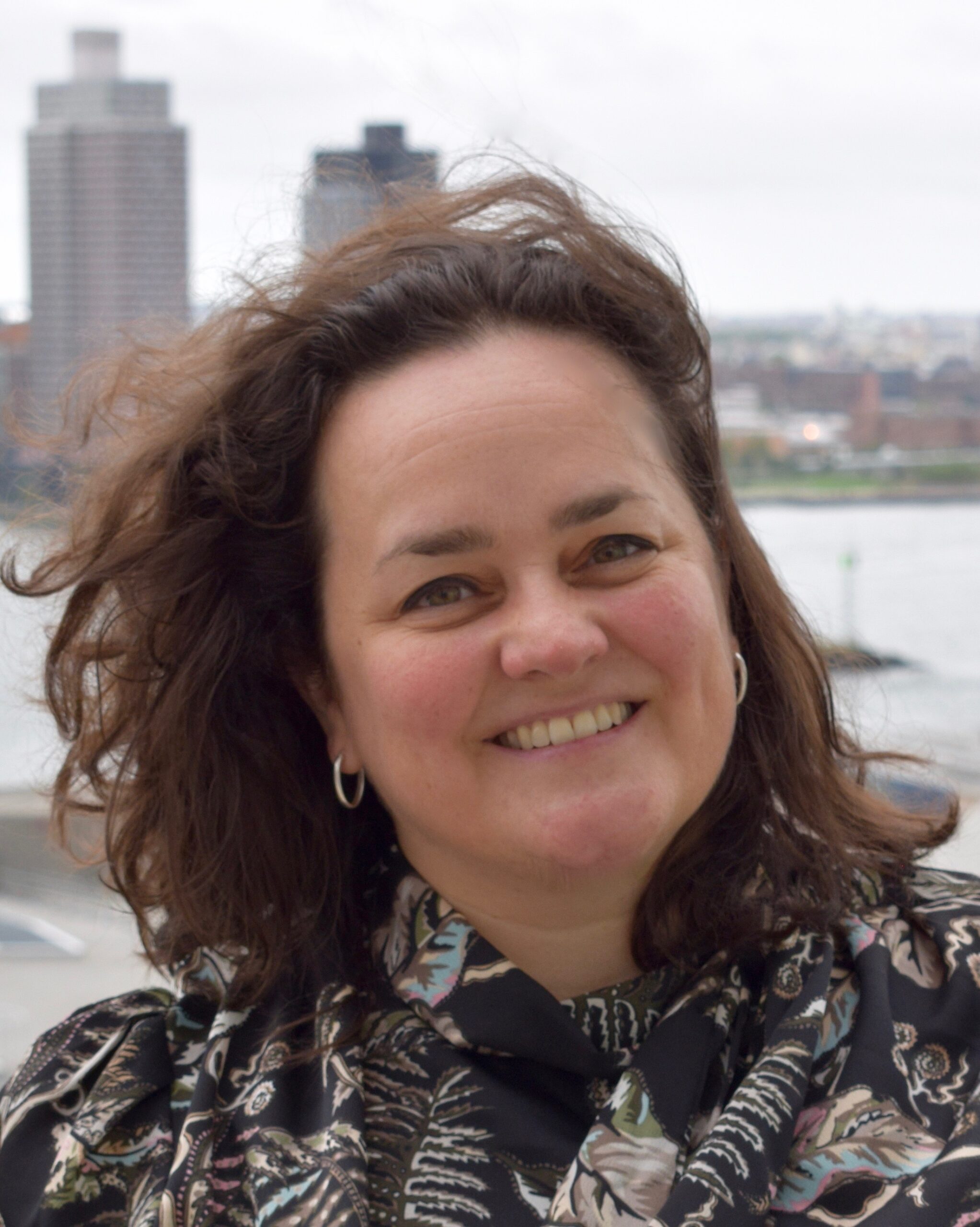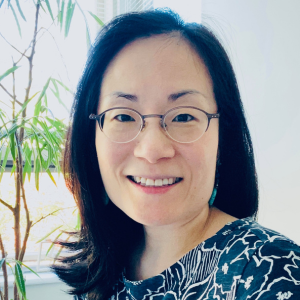Reimagine Teaching and Learning
The fully online and asynchronous Master of Education in Curriculum and Pedagogy equips education professionals to design inclusive, innovative learning experiences across K-12, higher education, nonprofits, and corporate settings.
Designed for Impact — Deepen your expertise in curriculum design and inclusive instruction to meet 21st-century learning challenges with creativity, insight, and purpose.
Beyond Traditional Teaching — Guided by Yorkville’s Signature Learning Outcomes, we prepare you to explore authentic assessment and use research-informed methods like inquiry-based learning to spark curiosity, support diverse needs, and inspire engagement.
Flexible and Future Ready — Offered with course- and research-based pathways so you can align your studies with your career goals. Our online format supports working professionals while grounding theory in real-world teaching contexts.
Graduate as a responsive educator prepared not just to teach, but to shape systems, uplift communities, and champion meaningful change.


Up to 15% Higher
Canadian educators with a master’s degree earn more than those with a bachelor’s degree**
16,000
New jobs expected in curriculum design and education development over the next decade***
New Term Starts Soon
Starts:
January, May, September
Campus:
Fully Online and Asynchronous | Full-time and Part-Time
Duration:
As few as 20 months*
*In a course-based pathway with full course load, year-round study. Time may be further reduced with approved transfer credits.
Program Benefits
Career Outcomes
Graduates of the MECP are prepared for roles in various education settings as listed below but are not limited to:
-
Curriculum Coordinator
-
Curriculum Specialist
-
Curriculum Developer
-
Educational Developer
-
Instructional Designer
-
Director of Teaching and Learning
-
Education Program Manager
-
Education Program Advisor
-
Educational Consultant
-
Corporate Trainer
Career outcomes listed are examples only and may vary based on individual background, previous
experience, and market conditions.
Faculty
Meet the Dean

Dr. Karen Edge
Dean, Faculty of Education
Dr. Karen Edge joined Yorkville University in September 2025 from UCL Institute of Education (“IOE”) in London, UK. At IOE, Karen led the MA Leadership and MBA Educational Leadership (International) programs. As UCL’s Pro-Vice Provost (International), Karen co-led and championed the implementation of UCL’s international strategy including co-chairing UCL’s Canadian strategic partnership and the UCL Global Research Forum.
Awarded over CDN $1.8 million in research funding, Karen’s research spans 35+ countries and explores educational leadership, equality and diversity, international collaborations, generational theory, and system-level change. Karen prioritizes inclusion and partnership, engaging over 100 global research colleagues, and 75 expert academic, policy and practice advisory board members.
Karen holds a PhD in Educational Administration and Master of Arts (Higher Education) from the Ontario Institute of Studies in Education/University of Toronto. She earned her BSc in Biology and Environmental Science from Western University. She also received the UCL IOE Director’s Prize for Public Engagement (2015) and became a Salzburg Global Fellow (2022).
Karen has long admired the innovation and strength of the Faculty of Education and is excited to work alongside colleagues and students. She looks forward to collaborating with sector partners for the benefit of students, faculty and educational organizations and systems across the country.
Meet the Faculty
Admission Requirements
Yorkville University’s Master of Education program is 100% online. The Master of Education online degree is administratively offered by our Fredericton campus.
General admission requirements for the graduate program include:
- A bachelor’s or first professional degree from a recognized university
- A cumulative GPA of at least 3.0
- Two letters of reference from professional or academic sources
- A résumé or CV
- A 700–1000-word letter of application substantiating future interests, motives for participation, and relevant work experience
Ideal applicants will have a relevant undergraduate degree with a minimum cumulative grade point average (CGPA) in undergraduate study of at least 3.0 on a 4.0 or 4.3 scale, or a GPA of at least 3.0 on the final 60 undergraduate credits taken. Applicants may be conditionally admitted with a GPA between 2.5 and 2.99 if strength of overall application is sufficient.
Our goal is to provide a flexible program that can also accommodate those within the field who, through portfolio presentation and supportive references, demonstrate aptitude and likelihood of successful completion.
Applicants whose native language is not English, or who have obtained a bachelor’s or first professional degree in a language other than English, are required to submit confirmation of an official test of ability to work and study in English (equivalent to a score of 7.0 on the IELTS test).
In addition, applicants are required to have:
Two (2) or more years of relevant teaching in education or an education-related role. In some cases, relevant volunteering work in community-based activities may be considered.
All official transcripts need to be sealed, stamped and sent directly from the issuing institution to our Admissions Services Department for evaluation.
Applicants who do not meet the standard admissions requirements may be considered for admission under the Faculty of Education’s Flexible Admissions Policy, provided they offer evidence that indicates a strong chance of success in the graduate program, such as:
- Applicants who have an undergraduate degree with a cumulative GPA below 2.5 and who can provide evidence of career-related professional experience spanning more than ten years to the planned area of study
- Applicants with no undergraduate degree who can provide evidence of professional experience spanning more than ten years in a career related to the planned area of study
- Applicants who can provide evidence of extenuating circumstances (e.g., physical, sensory, or learning disability) for why they do not hold an undergraduate degree or did not achieve a GPA of more than 3.0.
The Faculty Admissions Committee will carry out an assessment of evidence of prior learning and professional accomplishments to assure a high probability of successful program completion for both the students and the University.
Yorkville University reserves the right to refuse admission or ask admitted students to withdraw from the program in special circumstances.
For full details of admissions requirements, please contact an Admissions Advisor.
To fill out the details of your reference for admission to our Master of Education in Curriculum and Pedagogy degree, click here.
Have any questions? Please contact an Admissions Advisor.
Tuition and Fees
Total Cost (including Application Fee) is $26,070*
*Note: Total program cost may be reduced when applying applicable transfer credits. Costs below assume full program cost without applicable transfer credits applied. The cost does not include textbooks, expendable supplies, equipment, and resource fees. To understand your specific program cost, please speak with an advisor.
- M.Ed. Tuition: $25,920
- Cost per credit: $864
- Program cost includes $300 seat fee and $150 application fee
- $300 Seat Fee is deducted from student’s first tuition payment
- Total program tuition may vary based on actual credit transfers and course equivalencies.
Assuming an average course load, tuition cost per term is $5,082
By selecting to take more or fewer courses per term, costs will be updated accordingly.
A typical course is 3 credits. Students must complete 30 study credits to graduate.
Term
Credits
Cost Per Credit
Fees
01
6
$864
$5,184
02
6
$864
$5,184
03
6
$864
$5,184
04
6
$864
$5,184
05
6
$864
$5,184
TOTAL
30
$864
$25,920
*Please note that tuition and fees are subject to change.
Tuition Payment and Rate Information
Changes to tuition rates will be announced at least three months before the start of the term to which they apply.
Arrangements for payment of tuition must be made at least two weeks before the start of each term (please see the Academic Schedule for deadlines). Monthly payment arrangements can also be made.
For further information about tuition, fees and payment methods, please contact Yorkville University’s Bursar’s Office at 1-888-886-1882.
Please contact an Admissions Advisor to learn more about financial aid options.
Program Structure
We recognize the diverse aspirations of our students and offer two pathways: course-based for those focused on professional learning outcomes and research-based for those passionate about research and interested in pursuing doctoral studies in the future.
Curriculum and Pedagogy Course-Based Program
| Year I | Term 1 | EDCP 6613: Historic and Emerging Curriculum Perspectives |
| EDUC 6013: Research in Education | ||
| Term 2 | EDUC 6063: Assessment and Evaluation in Education | |
| EDCP 6633: Culturally Relevant Pedagogies and Curriculum | ||
| Term 3 | EDUC 6123: Reflexive Inquiry | |
| Elective 1: To be selected from EDCP courses | ||
| Year II | Term 1 | EDCP 6443: Curriculum as Living Inquiry |
| Elective 2: To be selected from EDCP courses | ||
| Term 2 | Elective 3: To be selected from EDCP, EDEL, EDAE, or EDUC | |
|
EDUC 6083: Self-directed Inquiry
Prerequisite: Completion of first 9 courses in program of study |
Available Electives1
Electives 1 and 2 are to be chosen from the following EDCP course offerings:
- EDCP 6623 – Pedagogy and Praxis
- EDCP 6653 – Digital Pedagogies
- EDCP 6673 – Creativity in Teaching and Learning
- EDCP 6683 – Curriculum Development Across the Professions
Elective 3 is to be chosen from any of the above EDCP courses or the following EDEL, EDAE, or EDUC courses:
EDAE Courses
- EDAE 6303 – Contexts of Adult Learning
- EDAE 6323 – Foundations of Adult Education
- EDAE 6343 – Program Development and Planning
- EDAE 6363 – Diversity in Adult Education
- EDAE 6373 – Learning and Teaching Online
- EDAE 6383 – Transformative Learning in Adult Education
- EDAE 6513 – Becoming a Critically Reflective Educator
- EDAE 6523 – Adult Education for Sustainability and Global Citizenship
- EDAE 6533 – Coaching and Mentoring in Adult Education
EDEL Courses
- EDEL 6113 – Educational Leadership: Perspectives and Practices
- EDEL 6143 – Change and Transformation
- EDEL 6153 – Ethical Leadership
- EDEL 6173 – Administrators as Leaders
- EDEL 6193 – Diversity and Leadership
- EDEL 6223 – Supervision of Instruction
- EDEL 6433 – Leadership & Community Engagement
- EDEL 6453 – Leadership in Higher Education
- EDEL 6463 – Leadership and Online Pedagogies
EDUC Courses
- EDUC 6003 – Indigenous Perspectives in Canadian Education
- EDUC 6043 – Learning and Organizations
- EDUC 6643 – Decolonization and Indigenization of Curriculum, Teaching, and Learning
- EDUC 6703 – Indigenous Pedagogies and Ways of Knowing
- EDUC 6713 – Building and Strengthening Relationships in Indigenous Education
1 Elective offerings vary by term and enrolment.
Curriculum and Pedagogy Research-Based Program
| Year I | Term 1 | EDCP 6613: Historic and Emerging Curriculum Perspectives |
| EDUC 6013: Research in Education | ||
| Term 2 | EDUC 6063: Assessment and Evaluation in Education | |
| Elective 1: To be selected from EDCP courses | ||
| Term 3 | EDCP 6443: Curriculum as Living Inquiry | |
|
EDUC 6093: Advanced Research Methods in Education
Prerequisite: Completion of first 5 courses in program of study with a minimum cGPA of 3.70 |
||
| Year II | Term 1 |
EDUC 7000: Graduate Research Thesis
Prerequisite: Completion of 6 courses in program of study with a minimum cGPA of 3.70 |
| Term 2 | EDUC 7000: Graduate Research Thesis | |
| Term 3 | EDUC 7000: Graduate Research Thesis | |
Available Electives1
Elective 1 is to be chosen from the following EDCP course offerings:
- EDCP 6623 – Pedagogy and Praxis
- EDCP 6633 – Culturally Relevant Pedagogies and Curriculum
- EDCP 6653 – Digital Pedagogies
- EDCP 6673 – Creativity in Teaching and Learning
- EDCP 6683 – Curriculum Development Across the Professions
1 Elective offerings vary by term and enrolment.
Course Descriptions
The rigorous curriculum of the Master of Education Curriculum and Pedagogy includes the following courses:
MECP Course-Based Pathway
Curriculum as Living Inquiry introduces students to curriculum as dynamically re/conceptualized and relationally understood. Drawing from both foundational and current scholars, students will differentiate between curriculum as plan and curriculum as process as they explore the notion of currere, interrogate hidden curriculum, and investigate those made invisible by curriculum. The roles of self and self-in-relation are central considerations as students from diverse education contexts explore various approaches to including lived experience in curricular initiatives or program planning.
Historic and Emerging Curriculum Perspectives explores local and global philosophical, historical, and social influences on the development of diverse curriculum theory and practices. Drawing from both foundational and contemporary literature, students will examine trends and tensions that arise in discussions about the purposes and meanings of education. Students will be encouraged to explore global perspectives, their implications within the educational practices in Canada, and the specific curricular and pedagogical issues, challenges, and questions within their own education contexts.
Pedagogy and Praxis requires students to practice reflexive approaches to inquiry and development. Understanding praxis as the theoretical enactment of beliefs about teaching and learning, students will engage in Self-Study methodology (S-STEP) to examine the various ways pedagogy is continuously re/developed and how pedagogy informs praxis.
Culturally Relevant Pedagogies and Curriculum engages a dialogic model to centre discussions that help students develop a greater understanding of historical and continuing forms of colonialism and colonization, marginalization and minoritization, Indigenization and decolonization. Students will examine issues of identity and intersectionality; privilege and power; race and ethnicity; gender and sexual orientation; and cultural knowledge systems.
Digital Pedagogies provides students with an overview of how the infusion of technology has influenced pedagogical processes in face-to-face and online learning contexts. This course engages dialogic inquiry to cultivate socially just learning contexts and foster a move toward an open, equitable, instructional role in technologically supported contexts. Emphasis is placed on how contemporary learning theories and novel pedagogies enable educators to provide person-centric, socially supported learning that integrates inclusiveness and universal design for learning. This course prepares students to be effective and ethical educators as they work to advance educative practice, support student engagement, and transform learning.
Creativity in Teaching and Learning focuses on the importance of fostering creativity in both teaching and learning experiences. Through exploration of current literature and experimentation with practices, students will learn to create more effective educative contexts. Students will specifically examine and practice ways of teaching that promote greater creativity and engagement with the aesthetic. They will also generate plans for continued development of their own creativity as a part of continuous professional development.
Curriculum Development Across the Professions offers students the opportunity to explore traditional, current, and pioneering approaches to curriculum development. They will examine applications across a range of contexts, in consideration of a range of learners and teachers, and in relation to various content. In communities of praxis, students will undertake analysis of curriculum development in their unique professional contexts.
Elective 3 to be chosen from any of the above EDCP courses or the following EDEL/EDAE/EDUC course offerings:
Contexts of Adult Learning introduces students to the contexts of adult education and investigates what it means to be learning in a number of different contexts. The situational aspect of learning will be central to the enquiry and students will take a close look at formal, informal and open learning, networked learning, experiential, simulation, and place-based learning, community-based learning, learning in communities of practice; and learning in communities of interests. These learning contexts will lead students not only to social learning theory, with a particular focus on the local community, the workplace, the home, the voluntary sector, but also to theories of self-direction and connectivism as might be most obvious in relatively new online learning spaces. Students will explore how the learning and knowledge-generating capacities of such spaces will affect their success.
Foundations of Adult Education presents an overview of the major societal purposes of adult education by exploring and examining the conceptual, historical, and philosophical foundations that inform current practices in the field. Students are encouraged to examine the relationship between theory and practice, and to identify their own ideas and practices in relation to these theories and practices.
Program Development and Planning provides a theoretical and conceptual foundation in contemporary approaches to program development and planning for adult learners. Students apply newly acquired knowledge and skills in designing a program. Topics include: designing and developing programs; assessing needs; setting learning objectives and outcomes; designing instructional plans; and developing evaluation strategies.
Diversity in Adult Education addresses how adult education programs understand and respond to different cultural contexts. Through selected readings, weekly discussions, and assignments, students will develop a greater understanding of diversity as a social construction in relation to the concepts of social identity and social location. The specific areas of diversity included in this course are: identity and intersectionality; privilege and power; race and ethnicity; gender and sexual orientation; Indigenous knowledge; inclusiveness and universal design for learning; and globalization and adult learning.
Learning and Teaching Online explores the theory underlying the development and application of new interactive educational technologies, how they might fit with instructional design, learning and assessment strategies, and infrastructures. The course provides hands-on experience with a range of learning technologies and enables students to explore the processes of designing, implementing, and critiquing technology-based learning. The course will introduce students to current debates around the concept of openness. By the end of the course, students will have developed the ability to act as creative and critical professionals within the broad field of technology-based learning, teaching, and training.
Transformative Learning in Adult Education involves an examination of transformative learning. This course will help students to understand what transformative learning is, distinguish it from other forms of learning, and foster it in their practice. The course will cover five broad areas: history, theory, research, practice, and future perspectives of transformative learning.
Becoming a Critically Reflective Educator involves the examination of a variety of teaching and facilitating approaches that enhance the adult learning experience in individual or group settings. Topics include: teaching styles; creating motivating learning environments; ethical concerns in teaching adults; guidelines for selecting teaching methods; the use of technologies for teaching; and the assessment of teaching performance.
Adult Education for Sustainability and Global Citizenship is designed to provide students with the knowledge and skills to integrate with depth and creativity the principles of sustainability and global consciousness into classrooms, colleges, and community contexts. Students will explore sustainable development and global citizenship to understand their alignment with adult education theory and practice, in particular affective and dialogic learning, inclusivity, and systemic thinking.
Coaching and Mentoring in Adult Education will introduce students to coaching and mentoring strategies that they can utilise in their workplaces. Students will learn about the underlying theory as well as explore current models. They will also be encouraged to reflect on what coaching and mentoring strategies may work best for them and their organisation. This course will aid students in helping others toward continuous professional development.
Educational Leadership: Perspectives and Practices is a foundational course that is attentive to the ways theoretical knowledge and applied practice can inform each other. A prerequisite for further studies in the field, it explores major theoretical perspectives on leadership in relation to current practices in educational administration and leadership.
Change and Transformation prepares students to successfully manage and champion personal, professional, and organizational change. Collaborative and interest-based approaches are foundational as are discussions of dynamic change theory and the avoidance of change fatigue.
Ethical Leadership uses tenets of critical pedagogy and ethics to help students develop as critically conscious leaders guided by the notion that education can simultaneously foster the cultivation of intellect and a commitment to socially just practices.
Administrators as Leaders focuses on developing leadership and managerial skills in school administrators. Particular attention is given to instructional leadership, developing clear, compelling, shared, and supported visions, and encouraging cultures of ongoing learning and professional development.
Diversity and Leadership uses selected readings, weekly discussions, and assignments, to help students develop a greater understanding of diversity as a social construction in relation to the concepts of social identity and social location. The specific areas of diversity included in this course are: identity and intersectionality; privilege and power; race and ethnicity; gender and sexual orientation; multiculturalism; inclusiveness and universal design for learning; and globalization and leadership.
Supervision of Instruction introduces students to various institutional settings for instructional supervision as well as supervisory techniques that support professional development.
Leadership and Community Engagement teaches students to engage a range of community stakeholders in ways that benefit all those with vested interests. Identifying leaders as integral to this process, this course focuses on the complexities of community engagement and the various forms this engagement might take. The skills required of successful leaders of community engagement are explicitly connected to critical reflection and thoughtful praxis. Particular attention is given to students developing their own leadership capacity to strengthen professional connections within their K-12 school communities and/or community-based non-profit organizations. The course name for EDEL6433 will appear on Transcript and Term Record as Stakeholder Engagement for students who have taken this course prior to April 30, 2021.
Leadership in Higher Education encourages students to develop the skills, knowledge, and innovative thinking that is required of leaders within various post-secondary contexts. Under the impacts of internationalization and 21st century technological advances, individuals in multi-faceted leadership positions across colleges and universities are being challenged to consider emerging models of leadership and their implications for the design and organization of post- secondary educational environments. The specific areas of leadership in higher education included in this course are: strategic planning; communication, collaboration, and partnership development (within and beyond the institution); leadership commitment to diversity; supporting intellectual curiosity; recruitment, retention, and student support; financial leadership; change leadership and crisis management.
Leadership and Online Pedagogies prepares students to lead educators and instructional teams in online settings. Designed for current and aspiring leaders in K–12 education, higher education, and organizational training, this course explores the core elements of effective online program leadership: strategic program development, evidence-based design and teaching practices, and decision-making around emerging technologies. Through case studies and problem-of-practice discussions, students examine challenges in digital equity, policy formation, professional learning, and data-informed organizational change. Anchored in organizational learning and leadership theory, this course equips participants to guide their institutions through rapid technological and pedagogical shifts with an emphasis on innovation, accessibility, and inclusion.
Indigenous Perspectives in Canadian Education introduces students to the history of Indigenous education in Canada, Indigenous pedagogies and epistemologies, decolonization in education, while encouraging students to think about their own roles in reconciliation through the lens of education. Through selected readings, weekly discussions, and assignments, students will develop a greater understanding of the traditional, historical, and contemporary roles of education in the lives of Indigenous Peoples in Canada. Because the course readings include studies that draw upon Indigenous or Indigenous-informed methodologies, students will also be introduced to some ways that Indigenous methodologies are used in educational research.
Research in Education introduces students to different research approaches, including quantitative, qualitative, mixed methods, arts-based, and community-based participatory research. The primary focus of this course is to help students understand research terminology, critically evaluate published research, and develop an understanding of different methodologies that are best suited for investigating different types of research questions. Research methods, information gathering strategies, and analysis procedures are also explored.
Learning and Organizations provides an opportunity for students to examine the emergence of the learning organization and explore ways to build sustainable learning dynamics and foster spaces where people flourish. Attention will be given to the ways knowledge management and technology help organizations become learning organizations.
Assessment and Evaluation in Education allows students to explore various diagnostic, formative, and summative methods from both theoretical and practical perspectives. Students will learn how to develop and use assessment to promote student learning within a positive knowledge-curation culture (i.e., classroom, department, working unit, etc.). A focus on how to build efficacious and self-regulated learners through pedagogical assessment strategies that utilize accurate and ethical interpretation will be a focus. Students will also explore and differentiate between assessment and evaluation principles for both individual and program performance. A final culminating learning experience will be to reflect upon an assessment and evaluation of architecture that aligns to an area of professional interest.
Self-Directed Inquiry is designed to be the culmination of the Master of Education journey for students in the course-based pathway. It requires students to explore a specific area of research interest relevant to their field and to the designation that they are seeking. With the support of teaching faculty and each other, students will engage in discussions and assignments that support self-directed professional inquiry and their own professional learning. As such, students will focus equally on the demonstration of two competencies: conceptualizing, designing, and presenting a research inquiry that evidences criticality and creativity, individualized expression, and capacity to inform praxis; and the ability to communicate effectively at a level commensurate with graduate education.
Reflexive Inquiry begins from the notion that our lived experiences inform the ways we come to knowledge just as they influence how we engage with each other and the world. In providing students with an opportunity to examine the space between binaries like theory/practice, self/other, and teacher/learner, this course engages dialogic inquiry to cultivate social consciousness, foster accountability, and support ongoing professional development. Students are offered a range of assessment choices, including traditional academic essay, orality, visual curation, technology-based, and arts-informed evaluation.
Decolonization and Indigenization of Curriculum, Teaching, and Learning guides students to deconstruct colonial ideologies and dismantle structures that perpetuate privileging Western thought and approaches. In seeking to surface pedagogical biases that impact Indigenous ways of being, students learn to develop programs of study, curricula, and services that include Indigenous knowledges, perspectives, values, and cultural understandings in pedagogy, policy and daily practice.
Indigenous Pedagogies and Ways of Knowing examines Indigenous systems of teaching and learning from the perspective of Indigenous education, scholarship and research, and Indigenous knowledge holders and community members. Learners will gain deeper level understanding of the critical significance of orality, storytelling, Indigenous languages, Indigenous literature and Indigenous arts to curricula and programs of study. Holistic and lifelong learning, experiential, land and place-based, trauma-informed, and strengths-based pedagogies will be explored from within an intercultural ethical space of Indigenous relationality. Educators are encouraged to identify and create alternative approaches to facilitate and strengthen access and inclusion of Indigenous pedagogies and ways of knowing into instructional methods, evaluation, and assessment, in systems of education in school, classroom and community environments.
Building and Strengthening Relationships in Indigenous Education explores building and strengthening of relationships in Indigenous education at the intersection of Indigenous, settler and immigrant knowledge and experience. Individual and collective roles, attitudes and behaviours, responsibility and representation are examined in the context of processes of colonization, decolonization and resurgence, hegemony, power and privilege, access, inclusion, and accountability, in systems of education. Guided by Indigenous principles and reconciliation framework, students will engage and collaborate in processes of envisioning decolonization and Indigenization within an ethical space of Indigenous relationality to build authentic respectful intercultural relationships in education curricula, programming, and policy.
MECP Research-based Pathway
Curriculum as Living Inquiry introduces students to curriculum as dynamically re/conceptualized and relationally understood. Drawing from both foundational and current scholars, students will differentiate between curriculum as plan and curriculum as process as they explore the notion of currere, interrogate hidden curriculum, and investigate those made invisible by curriculum. The roles of self and self-in-relation are central considerations as students from diverse education contexts explore various approaches to including lived experience in curricular initiatives or program planning.
Historic and Emerging Curriculum Perspectives explores local and global philosophical, historical, and social influences on the development of diverse curriculum theory and practices. Drawing from both foundational and contemporary literature, students will examine trends and tensions that arise in discussions about the purposes and meanings of education. Students will be encouraged to explore global perspectives, their implications within the educational practices in Canada, and the specific curricular and pedagogical issues, challenges, and questions within their own education contexts.
Pedagogy and Praxis requires students to practice reflexive approaches to inquiry and development. Understanding praxis as the theoretical enactment of beliefs about teaching and learning, students will engage in Self-Study methodology (S-STEP) to examine the various ways pedagogy is continuously re/developed and how pedagogy informs praxis.
Culturally Relevant Pedagogies and Curriculum engages a dialogic model to centre discussions that help students develop a greater understanding of historical and continuing forms of colonialism and colonization, marginalization and minoritization, Indigenization and decolonization. Students will examine issues of identity and intersectionality; privilege and power; race and ethnicity; gender and sexual orientation; and cultural knowledge systems.
Digital Pedagogies provides students with an overview of how the infusion of technology has influenced pedagogical processes in face-to-face and online learning contexts. This course engages dialogic inquiry to cultivate socially just learning contexts and foster a move toward an open, equitable, instructional role in technologically supported contexts. Emphasis is placed on how contemporary learning theories and novel pedagogies enable educators to provide person-centric, socially supported learning that integrates inclusiveness and universal design for learning. This course prepares students to be effective and ethical educators as they work to advance educative practice, support student engagement, and transform learning.
Creativity in Teaching and Learning focuses on the importance of fostering creativity in both teaching and learning experiences. Through exploration of current literature and experimentation with practices, students will learn to create more effective educative contexts. Students will specifically examine and practice ways of teaching that promote greater creativity and engagement with the aesthetic. They will also generate plans for continued development of their own creativity as a part of continuous professional development.
Curriculum Development Across the Professions offers students the opportunity to explore traditional, current, and pioneering approaches to curriculum development. They will examine applications across a range of contexts, in consideration of a range of learners and teachers, and in relation to various content. In communities of praxis, students will undertake analysis of curriculum development in their unique professional contexts.
Research in Education introduces students to different research approaches, including quantitative, qualitative, mixed methods, arts-based, and community-based participatory research. The primary focus of this course is to help students understand research terminology, critically evaluate published research, and develop an understanding of different methodologies that are best suited for investigating different types of research questions. Research methods, information gathering strategies, and analysis procedures are also explored.
Assessment and Evaluation in Education allows students to explore various diagnostic, formative, and summative methods from both theoretical and practical perspectives. Students will learn how to develop and use assessment to promote student learning within a positive knowledge-curation culture (i.e., classroom, department, working unit, etc.). A focus on how to build efficacious and self-regulated learners through pedagogical assessment strategies that utilize accurate and ethical interpretation will be a focus. Students will also explore and differentiate between assessment and evaluation principles for both individual and program performance. A final culminating learning experience will be to reflect upon an assessment and evaluation of architecture that aligns to an area of professional interest.
Advanced Research Methods in Education encourages students to explore the broad and deep possibilities for inquiry within critical, community-based, arts-integrated, qualitative, and quantitative research. Connecting rigour to researcher consciousness through reflexive inquiry, students will begin to think about situating themselves theoretically (ontologically, epistemologically, and methodologically) in the context of potential research topics of interest. Engaging with scholarly discourse and critical dialogue, students will extend their capacities from evaluating published research to preparing to conceptualize, conduct, and analyze their own research.
Guided by a thesis supervisor and supported by a committee of two additional faculty members, each student enrolled in the research-based pathway will undertake an original scholarly contribution based on research conducted while in program. The thesis must demonstrate that the student is acquainted with the published literature in the subject of the thesis, that appropriate research methodology has been used, and that appropriate levels of critical analysis have been applied. The thesis will be subject to external evaluation. As EDUC 7000 is a multi-term course, the course code for each term will be noted sequentially (EDUC7001, EDUC7002, etc.).
Learning Outcomes
Learn to design curriculum that reflects both real-world experiences and educational goals, creating learning spaces where every student feels seen, valued, and engaged.
Turn research into action with evidence-based, culturally inclusive teaching strategies that improve real-world learning environments.
Confidently communicate complex ideas, whether you’re leading a team, training others, or presenting at a conference.
Build the mindset to keep learning, keep leading, and keep making education more inclusive, creative, and effective, for yourself and others.
Related Programs

M.Ed. in Adult Education
Emerge not only as experts in adult learning theory and practice, but also as reflective practitioners capable of making meaningful contributions to the field and the growth of adult learners with our fully online program.
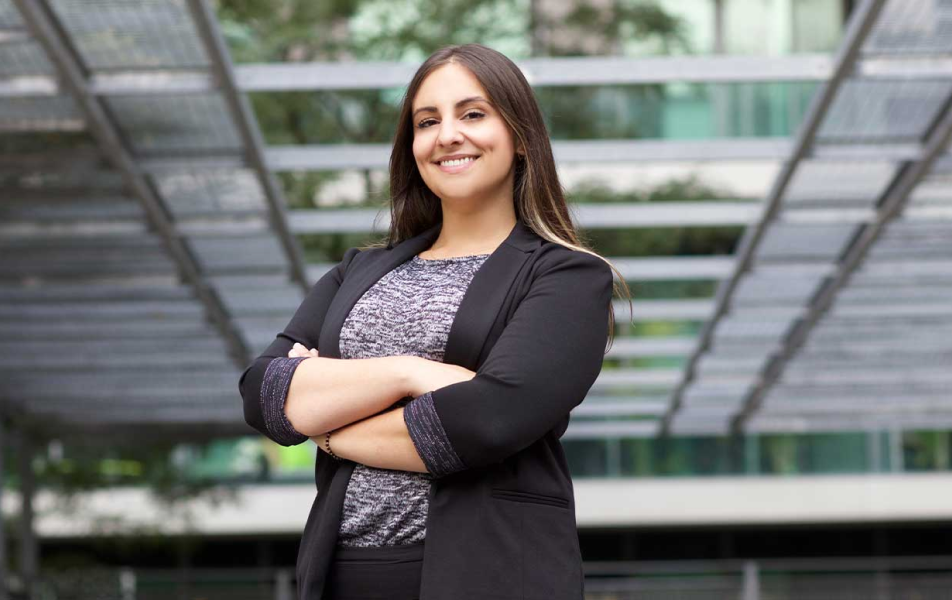
M.Ed. in Educational Leadership specializing in Educational Administration
Become a dynamic and effective leader or school administrator, equipped to champion initiatives, lead departments, and contribute to positive educational change within K-12 settings.
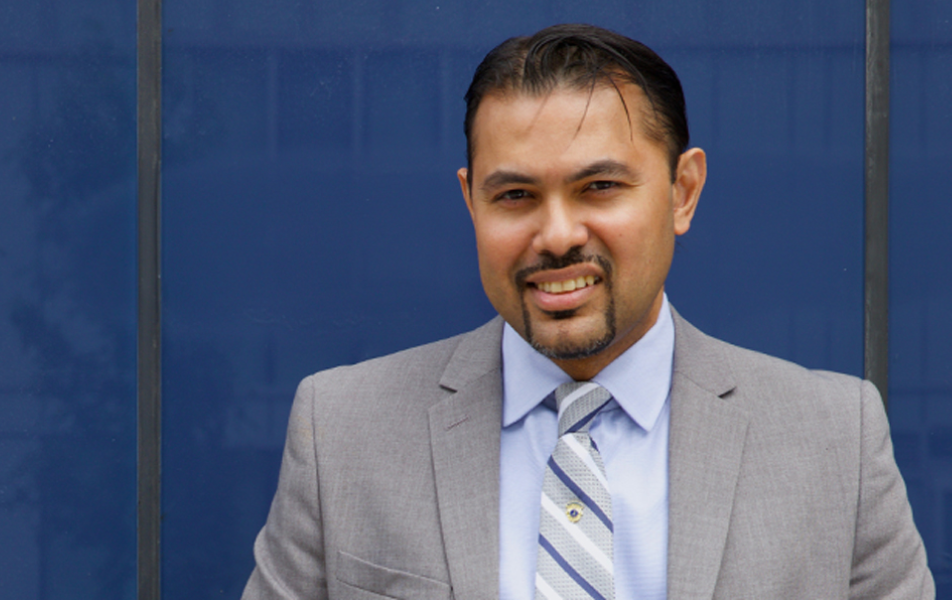
M.Ed. in Educational Leadership specializing in Leadership in Learning
Build a career navigating challenges, championing initiatives, and leading transformative change in post-secondary education, community education, corporate learning and development, and non-profit organizations.
Testimonials
FAQ
The MECP is designed to deepen your curricular knowledge and pedagogical practices. Whether you’re a classroom teacher, a curriculum specialist, or an aspiring educator, this degree helps you to create engaging, effective, and socially equitable learning experiences. Our fully online, asynchronous format offers flexibility to fit your schedule. If you are looking to advance your career while studying from home or at work, the online degree can be completed in as few as 20 months through the course-based pathway with a full course load and year-round study.
The program is designed for education professionals with diverse educational and professional experiences, including educators in K-12 and higher education, curriculum specialists, corporate trainers, or educational consultants, practitioners, and facilitators working across varied organizational and community contexts. In this program, students engage with various curriculum theories, explore creative pedagogical practices, design authentic assessments, and develop inclusive, student-centered learning experiences that are socially responsive.
The MEd in Adult Education focuses on the theory and practice of instructing and learning for adult learners in a variety of work environments.
The MEd in Educational Leadership focuses on leadership and driving initiatives in educational organizations, including K-12 education and non-school-based learning environments.
The program offers two distinct specializations:
Educational Administration: Tailored for K–12 educators and administrators.
Leadership in Learning: Designed for professionals working in community education, corporate learning, and organizational development.
The MEd in Curriculum and Pedagogy focuses on curricular and pedagogical practices for both seasoned and emerging education professionals within diverse contexts.
Please see here for current tuition rates. Yorkville University is committed to helping you evaluate different financial aid options and payment schedules. Please contact an Admissions Advisor for more information.
Students can expect to dedicate approximately 16 to 20 hours per week to successfully complete the requirements for each academic course.
Please see here for more information or contact an Admissions Advisor if you have further questions.
Yorkville University has been granted consent or designated by the provinces of New Brunswick, Ontario, and British Columbia to offer specific degree programs. To see which degrees have been granted consent or designated in each province, please refer to this page, or contact an Admission Advisor.
For more information on the minimum English language requirements, please contact an Admissions Advisor.
Please contact an Admissions Advisor for more information.
Several scholarships and bursaries are offered by Yorkville University, but only domestic students are eligible to apply. Please see here for more information.
Yorkville University is committed to helping you evaluate different financial aid options and payment schedules. Please contact an Admissions Advisor for more information.
Only domestic students can apply to Canadian provincial student loan programs such as the Ontario Student Assistance Program (OSAP), New Brunswick Student Loans (NBSL) or StudentAid BC.
Yorkville University is committed to helping you evaluate different financial aid options and payment schedules. Please contact an Admissions Advisor for more information.
If you can’t find your questions addressed on this web page, please contact an Admissions Advisor if you have additional questions.








